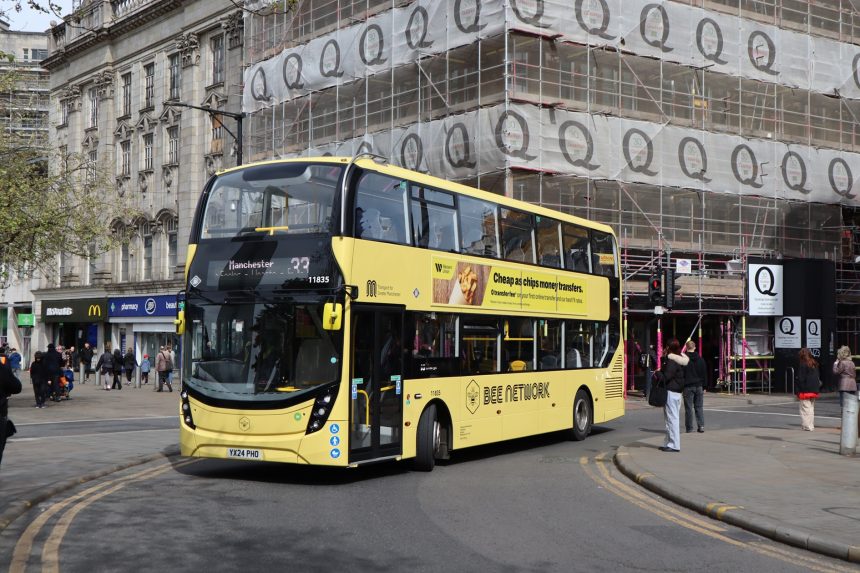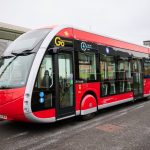Reacting to the inclusion of the Better Buses Bill in the King’s Speech today, the Confederation of Passenger Transport (CPT) has cautioned that franchising in itself is not enough to improve bus services.
The new government used the address to introduce a Bill which will allow local leaders to take back control of bus services.
It follows Labour’s pre-election promise to revolutionise bus services, which also comprised removing the ban on new municipal operators, reforming bus funding and safeguarding local bus networks.
CPT CEO Graham Vidler repeated his view that key changes such as improving bus priority, combating road congestion and encouraging modal switch would be required regardless of the regulatory framework.
Mr Vidler says: “The bus industry will work closely with the new government to help transform the sector and to help realise its key priorities for economic growth, swifter decarbonisation, and more sustainable travel.
“Bus services are already being transformed in many parts of the country and CPT urges local leaders to use the extensive opportunities they already have to influence and shape the delivery of better bus services.
“Existing ‘enhanced partnerships’ are growing networks, improving the passenger experience and boosting passenger numbers in places like Leicester, Portsmouth and Norfolk.
“CPT and its members will continue to work closely with the many authorities that want to retain a partnership model to deliver what passengers want – more bus services that are regular, fast, and punctual.”
He adds that CPT will help further the success of franchising in cases where local authorities follow Manchester, Liverpool and West Yorkshire in taking that step.
He adds: “We will also share lessons from the early adopters of bus franchising with ministers, mayors and regional or local transport authorities to help ensure success in other areas that choose this option.
“No amount of regulatory change will deliver better services unless local, regional and national governments move swiftly to give buses priority on the road network, curb congestion, and persuade more people to switch away from private car journeys and towards public transport.
“Whoever controls bus networks, stable long-term investment in the sector will be critical. Immediate action must prevent a cliff edge return to fully commercial fares when the £2 fare cap ends in December – a scenario that will harm passengers and services.”
Meanwhile, Urban Transport Group included a welcome of the Bill in its response to the King’s Speech, which also included an English Devolution Bill and a pledge to a move towards public ownership of the railway.
UTG Director Jason Prince says: “The King’s Speech sends a strong signal of intent that this government is serious about transforming our transport sector.
“Our rail services need reform, so it is encouraging that the government is moving ahead with the creation of Great British Railways. And on buses, local leaders will be given greater powers to franchise or publicly own bus services – powers we have long called for.
“Together with the recognition that greater devolution can herald positive change for local communities, these new Bills could lead to big improvements in transport.
“As city regions that deliver transport services for millions of people day in, day out, we stand ready to work with the new Government to help realise their ambitions.”
A further positive response came from repower specialist Equipmake, which offers diesel-to-electric conversions in the coach and bus sector.
CEO Ian Foley says: “The Better Buses Bill sends encouraging signals that the new government is keen to reform the transport sector.
“Giving local leaders greater control over their bus services is good news.
“With local air quality high on the agenda, there is potential here for regions to choose cleaner, more cost-effective vehicles. And rather than purchasing new electric buses, which are extremely costly, we would urge city fleets to convert existing vehicles to electric, a service offered by Equipmake, using in-house developed, cutting-edge electric technology.
“With local operators providing transport services for millions of people day in, day out, there is a major opportunity and repowering can not only make the local zero emission transition faster and more cost-effective (both short term and long term), but also give drivers and passengers better vehicles.
“Equipmake looks forward to further announcements from the new government, and repeats its call for incentives to reduce the purchase price of a repowered bus across the UK, which would really bring about transformational change.”



























